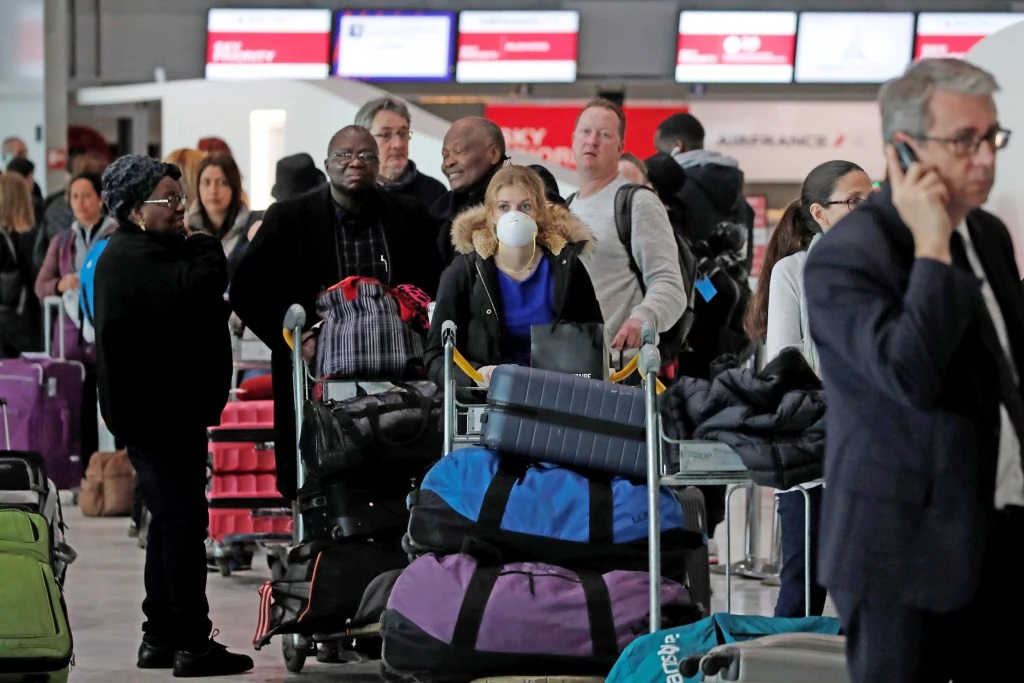Venezuela, on Wednesday, June 4, 2025, sharply criticized the Trump administration’s newly reinstated travel ban, warning that the United States itself poses a danger to foreign nationals.
On the other hand, The Guardian reports that Somalia responded more diplomatically, expressing willingness to work with Washington to resolve concerns.
These contrasting reactions followed President Trump’s decision to reintroduce one of his most controversial policies from his earlier term, a travel ban affecting 12 countries.
The new restrictions target Afghanistan, Iran, Yemen, and others, sparking international backlash and support in varying degrees.
Venezuelan Interior Minister Diosdado Cabello condemned the U.S. in strong terms.
Cabello warned Venezuelans to avoid traveling there and calling the U.S. government “fascist.”
He added, “Being in the United States is a great risk for anyone, not just for Venezuelans.
“They persecute our people without justification.”
In contrast, Somalia took a more cooperative tone.
Dahir Hassan Abdi, Somalia’s ambassador to the U.S., issued a statement affirming his country’s commitment to strengthening its ties with Washington.
“Somalia values its longstanding relationship with the United States and stands ready to engage in dialogue to address the concerns raised,” Abdi said.
Other countries on the list offered little to no immediate comment.
Calls to the spokesperson for Myanmar’s military leadership were not returned.
Also, Laos’s foreign ministry did not respond to media inquiries, according to Reuters.
Iran also had no immediate government reaction, but Jamal Abdi, president of the National Iranian American Council, expressed concern.
“The impact of the ban will once again be felt by Americans who are prevented from seeing family members at important life events like weddings, funerals, or the birth of a child,” he said.
The sweeping order halts all travel to the U.S. from nationals of 12 countries:
Afghanistan, Myanmar, Chad, the Republic of the Congo, Equatorial Guinea, Eritrea, Haiti, Iran, Libya, Somalia, Sudan, and Yemen.
Additionally, partial travel bans were issued against citizens of seven more nations: Burundi, Cuba, Laos, Sierra Leone, Togo, Turkmenistan, and Venezuela.
For these, some temporary work visas may still be granted. The new restrictions will go into effect on Monday, June 9, according to the White House.
Trump justified the ban by citing a recent violent incident in Colorado, where a makeshift flamethrower was used in an attack during a Jewish protest.
Authorities blamed the act on an undocumented immigrant, which Trump used as evidence of the need for tighter immigration controls.
Many of the nations named in the ban are mired in conflict or political instability.
Libya, Sudan, and Yemen are all facing prolonged internal conflicts with competing factions in control of various regions.
Sudan is experiencing a full-scale war, Yemen remains in a deadlock, and Libya’s various armed groups continue to operate with impunity.
The decision to include Afghanistan sparked particular outrage among those involved in refugee resettlement.
The overall ban has deeply upset advocates and veterans alike.
Although exceptions were made for Afghans holding Special Immigrant Visas (SIVs), typically individuals who worked closely with U.S. forces during the 20-year war.
Afghanistan had been one of the top sources of U.S.-bound refugees, with roughly 14,000 resettled between September 2023 and September 2024.
Trump had previously halted refugee admissions on his first day in office, and this latest move reinforces that policy.
“To include Afghanistan, a country whose citizens fought alongside American troops for two decades, is a moral disgrace,” said Shawn VanDiver, president of the advocacy group #AfghanEvac.
“It dishonors our allies, our veterans, and the principles we claim to defend,” he added.
The policy also drew strong criticism from humanitarian organizations and refugee support networks.
Abby Maxman, president of Oxfam America, stated that the ban was not genuinely about protecting national security.
“This policy is not about national security, it is about sowing division and vilifying communities that are seeking safety and opportunity in the United States,” Maxman said.
As the new restrictions draw global scrutiny, the reactions range from defiant condemnation to strategic diplomacy.
While some nations prepare to contest the ban, others aim to negotiate in hopes of maintaining ties with Washington.



